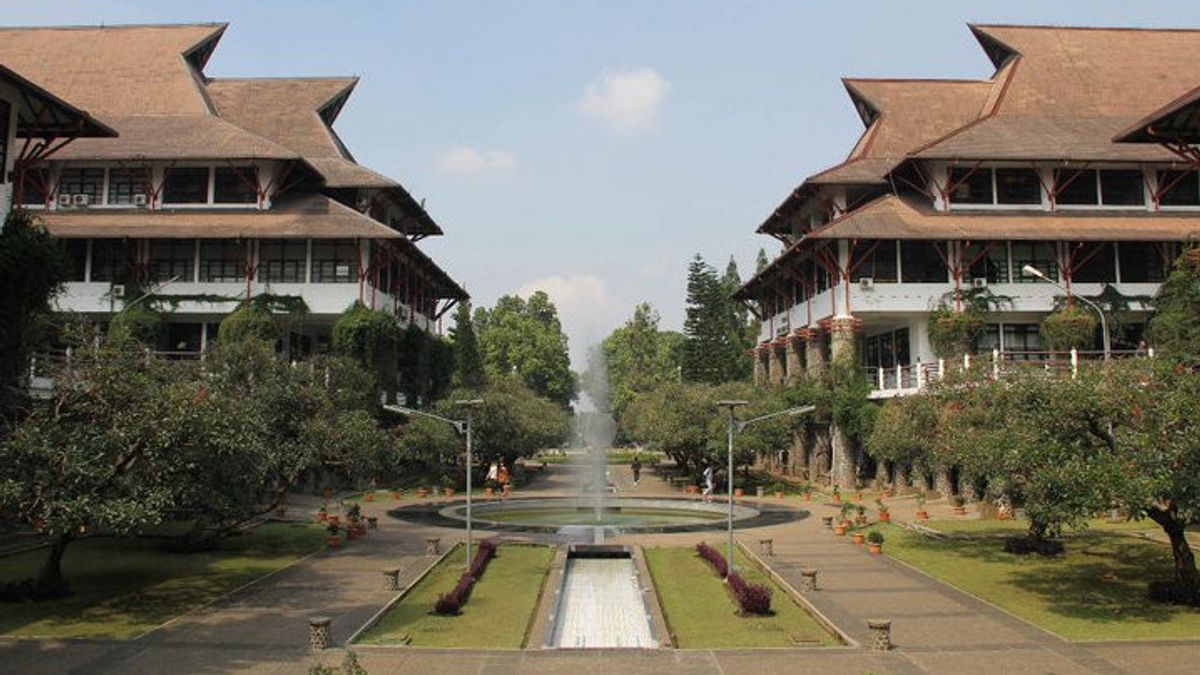JAKARTA - The symbol of the Bandung Institute of Technology (ITB) has a distinctive characteristic, namely Ganesha, the god of science who is also the son of the god Syiwa Parwati. The Ganesha symbol itself represents the nature of ITB's life that upholds knowledge. But is it only Ganesha that has symbolic elements?
A little history about ITB. Launching the official ITB website, the institute was founded in 1920 and was inaugurated again as the Bandung Institute of Technology on March 2, 1959. In addition, the main ITB campus is currently the location of the first technical college in Indonesia.
This institute is also the oldest technical college ever established in Indonesia. Since it was first inaugurated, this institute has undergone many changes along with the times.
The idea for Ganesha to become a symbol of ITB started with professors who one day walked around the campus looking for ideas. They include Prof. Ir. Soetedjo, Prof. S. Soemardja, Prof. Soemono, and Prof. Ir. RO Kosasih.
Even though they have been around, they never get the idea. They have also been paying attention one by one the buildings that have been standing on the campus while studying the history of the establishment of the campus.
Inspiration can come anywhere and be unexpected. They saw two small Ganesha statues placed under the clock on the campus gate on the side facing the front. The two statues are the findings of excavations at temple sites in Central Java by foreign archaeologists several years ago.
The statue was still on the ITB campus at that time because it had not been registered at the Elephant Museum in Jakarta. The small journey of the professors agreed to use the figure of Ganesha as a symbol of ITB.
At that time, a painter from ITB Fine Arts named Srihadi S, was assigned to design a new college emblem assisted by several assistants. Then the present ITB symbol was created.
Symbol of knowledgeGanesha itself has symbolized science and technology. Apart from that, there are other symbolic meanings in the elements that surround Ganesha, namely ivory, saucer, prayer beads and talimanics, axes, scarves and books.
An ivory that is broken and held by Ganesha, symbolizes the willingness to sacrifice in demanding scientific progress. In addition, there is a cawang which symbolizes an inexhaustible source of knowledge.
The ax at Ganesha's side depicts that he is the son of Lord Shiva. However, apart from that, the ax on the ITB emblem also symbolizes courage and policy.

On the other side, there is a prayer beads which symbolize wisdom. The shawl that Ganesha wears symbolizes purity. Then, finally, the open book symbolizes the accumulation of knowledge.
ITB is also a place to gain knowledge of Indonesia's proud figures. Some of them are Engineer Soekarno - previously ITB was still called De Technische Hoogeschool te Bandoeng - and BJ Habibie.
The English, Chinese, Japanese, Arabic, and French versions are automatically generated by the AI. So there may still be inaccuracies in translating, please always see Indonesian as our main language. (system supported by DigitalSiber.id)











